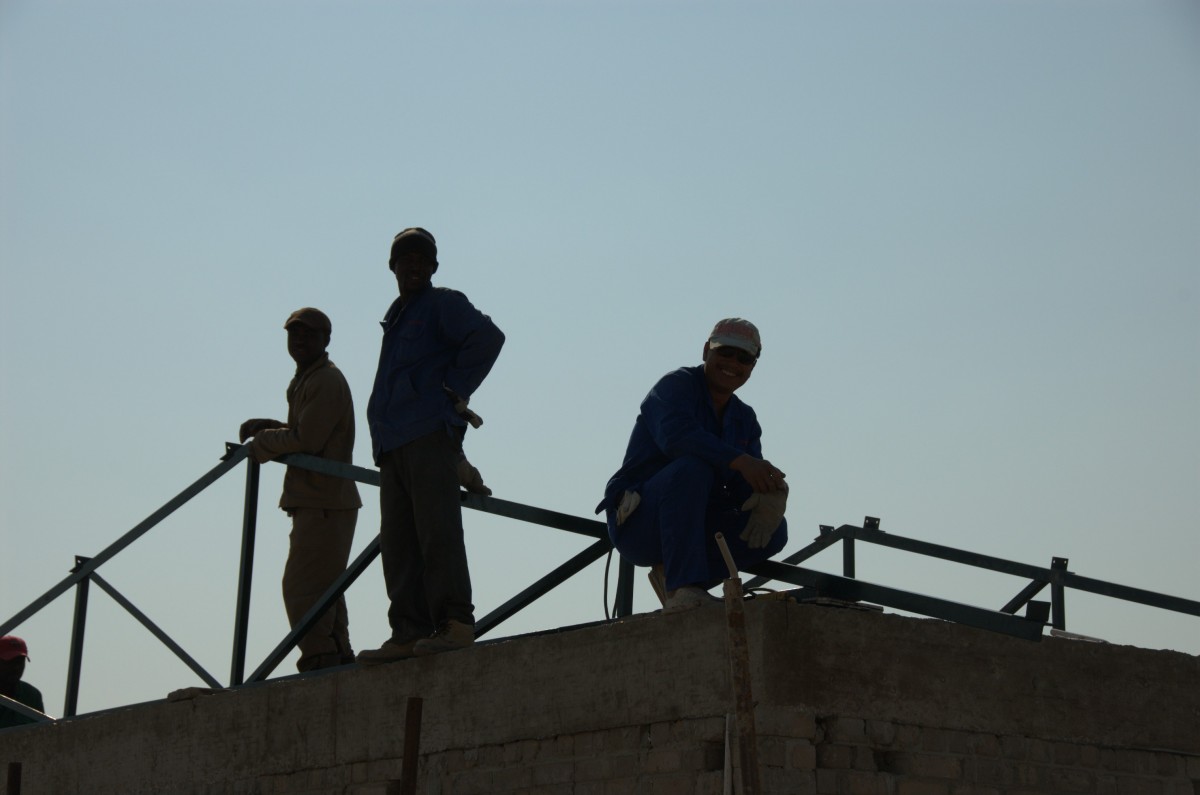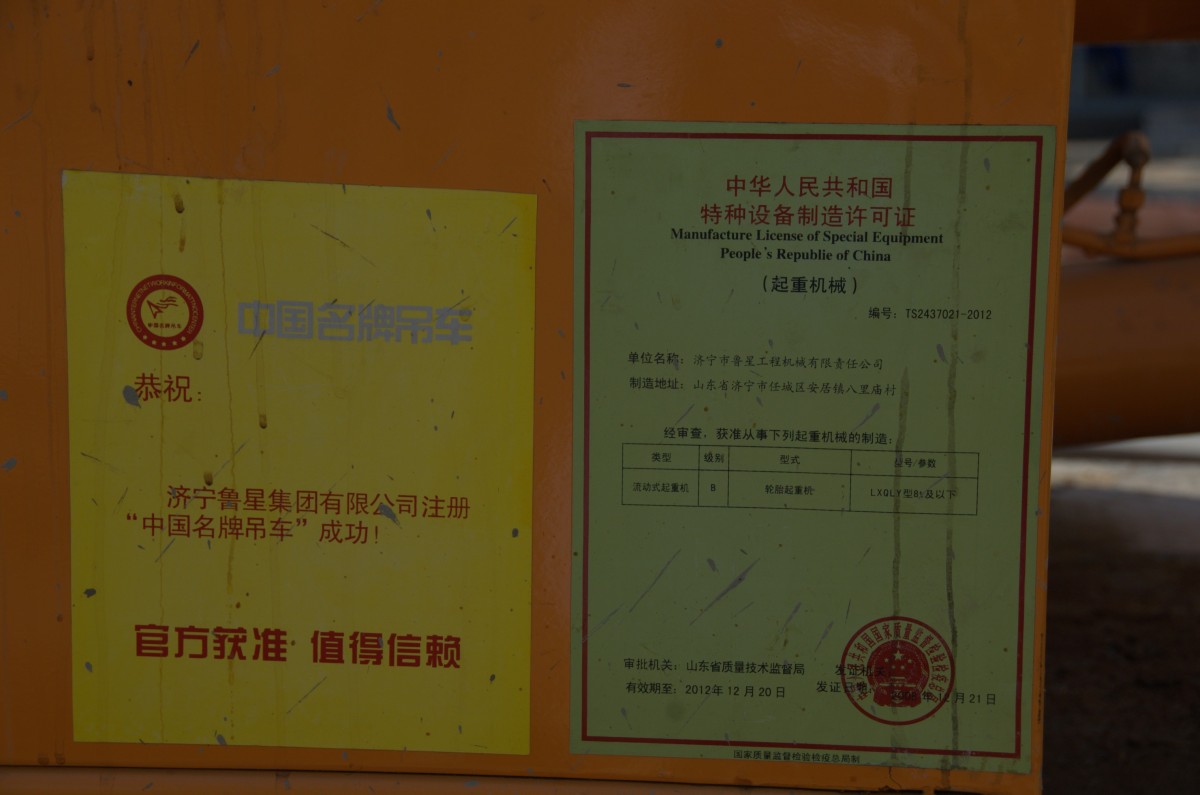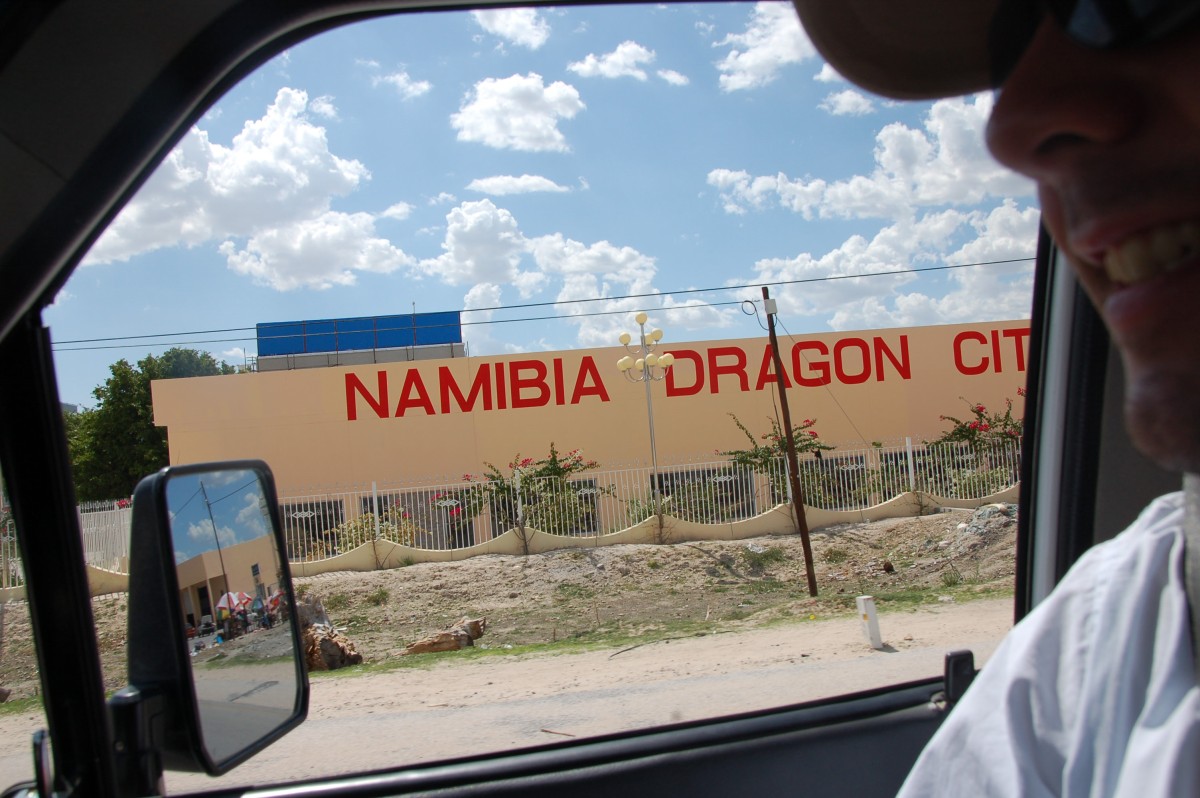What have the Omusati Regional Council, the Crafts Centre being build, the recently opened 100km tar road C41 between Okahao/Tsandi and the Opuwo/Ruacana junction, the ‘Outapi Times Square – Outapi’s newest and biggest shopping complex – and our region’s showcase school Onawa near Annamulenge in common? They are build and sometimes also financed or donated by the Chinese.
I’ve read a lot about the People’s Republic of China and their increasing presence and interests on the African continent during the last years. Recently I also watched the rather humorous BBC documentary ‘The Chinese Are Coming’. You easily could shoot another episode in Namibia.
Except when supervising their ‘China’ shops in Northern Namibia, where clothings, electronics and miscellaneous stuff of poor quality, are sold you barely see them in public life here. That they are numerous also in Namibia I had to hear the first time when I was listening to someone working at the Chamber of Commerce and Industry at a cozy dinner in Windhoek. In construction business they are simply everywhere here in the North. At Onawa, our newest school, roughly 40 Chinese workers, a few local labor, and even fewer ‘boers’ working there seven days a week – the Chinese are even not resting on public holidays. A tour on the construction site is a tour into a different world: earth moving vehicles, most building materials, engineering drawings, staff quarter kitchen (they do make delicious steam bread) and the toilet paper. It all comes from China. At the Omusati Regional Council things went into absurdity: even the emergency stickers on the water hose boxes are imported and have exotic phone numbers on it. Luckily they have their own fire truck.
There are many good articles on websites of relevant economical magazines trying to get to the bottom of PRC’s involvement on the African continent: explaining why comparatively simple work is done by ‘imported’ Chinese labor in African countries with high unemployment rates. So no need to philosophise about that. My only observation is that they work at a breathtaking pace. But the constructions have low quality standards and will not last long it seems to me.
Much more interesting is what locals up here think about their new neighbors. Whenever I had a good chance I’ve tried to bring up the topic or was watching, for example when waiting at the car wash or gas station and I Chinese store owner drove up. More black than white. Not surprisingly many locals are critical, sometimes even adversarial and express it verbally, when it comes to it. In the Omusati Region we have an unemployment rate of ~75%. Most people work for the government. Private business comes down to small shops, bars (shebeens – go on a building picture tour here), taxis or the car wash. The Chinese are competing exactly in that very first category with their shops which are flourishing. So they are, and are seen, as competitors and the same goes for the construction business. Some of my colleagues are on the other hand in favor of the Chinese and say they are doing good for the country. It is hard to say what their opinion is based on.
The Chinese itself don’t have it easy on the African continent. When staying at a friend’s place in Oshakati in the evening I often end up outside the apartment of Mr. H with a bunch of his friends eating and talking (as far as the language barrier allows it). H and his lovely wife and daughter own well running stores in town. He is in his mid-thirties. If you meet him the first time you would not think that. He had been in two African countries before. Several times robbed at gunpoint and injured with a knife. It is not a secret that Chinese store owner make a lot of money in cash. Crime has drastically increased in overcrowded areas around Oshakati since I came in 2010. Staying in Ongwediva (when Oshakati is L.A. – the adjoining Ongwediva is Beverly Hills) I heard several times shots fired at night – close to the police station. Due to that H. and most of his friends legally carry a gun with them all the time.
Construction workers at remote sites in the bush, for example at our Onawa school, are contrary to shop owners not exposed to the public at all and usually cannot speak a word English. They virtually never leave their barracks at the construction sites, where traditional food and phone calls via Internet help against home sickness. During my inspections at Onawa I also always felt welcomed and experienced a great deal of hospitality.


